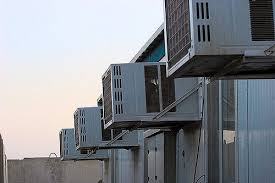The government has restated its commitment to heat pumps following the most recent Future Homes Standard consultation.
It investigated changes to Part L of the standard within which there were two key options, whether to target a 20% carbon emissions reduction in homes through “very high” fabric standards, or whether to target a 31% reduction through both fabrics standards and carbon-saving technology.
On Tuesday, the results were published with the Ministry of Housing, Communities and Local Government, which opted for the higher target, a move welcomed by groups including the Ground Source Heat Pump Association and Heat Pump Federation.
The document states that “a low carbon heating system will be integral to the specification of the Future Homes Standard and we anticipate that heat pumps will become the primary heating technology for new homes.”
While technically technology-neutral, the document highlights a number of key technologies it expects housebuilders will choose in order to reach the target, with the electrification of heat along with solar PV clear priorities.
Laura Bishop, chair of the Ground Source Heat Pump Association, said it is “essential that all new homes and commercial buildings are net zero ready as quickly as possible”.
While the next transitional decade will be a challenge, she continued, “the timescale for this cannot be allowed to extend, but the greater task will be in treating our existing housing stock where fabric improvements must march hand-in-hand with the replacement of carbon-intensive heating systems.”
The move comes after Prime Minister Boris Johnson set out an ambitious target of 600,000 heat pump installations annually by 2028 within his Ten Point Plan announced in November.
Decarbonising the heating sector has increasingly been drawing concern, as it currently lags behind others like electricity and transport in the UK. Research released last year by the UK Energy Research Centre suggested it will take the UK 700 years to move to a low carbon heating system at the speed it has been moving.
In response to the research, the Environmental Audit Committee (EAC) launched an enquiry into heat pumps, which found the current cost of electricity could cause the rollout of heat pumps to fail without further support. The cost of electricity is roughly four times more expensive than gas, due to the government placing the costs of its low carbon policy with customers it stated.
The EAC urged an extension to the Green Homes Grant – which offers financial support for homeowners keen to install a heat pump amongst other technologies – as well as support to develop supply chains and help to increase the number of skilled workers, amongst other measures.
The Future Homes Standard’s decision to push for greater low carbon technology adoption, including heat pumps, is therefore a welcome commitment by the government offering clear signals to the sector that will aid in scaling up.
Bean Beanland of the Heat Pump Federation said all eyes were now on how the “seismic shift away from fossil fuels will be funded”.
“It is essential that new mechanisms are found to pave the way for massive private investment whilst still protecting those who cannot self-fund or who are in, or close to, fuel poverty.”
Read more: CURRENT




